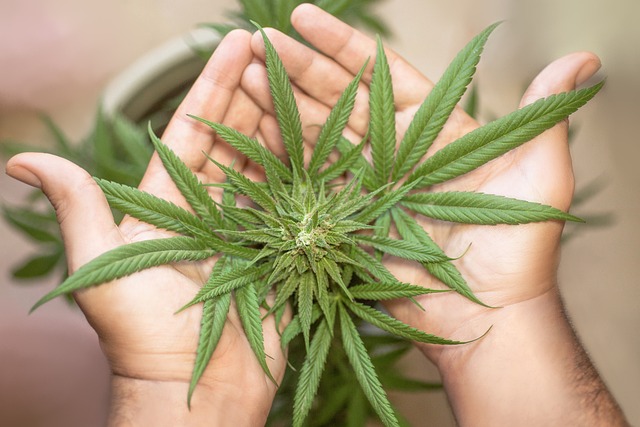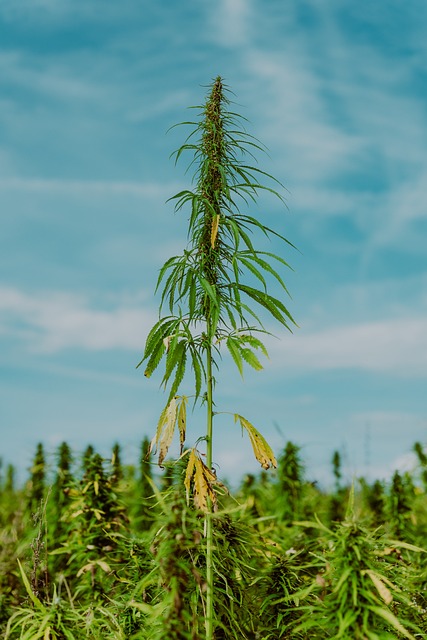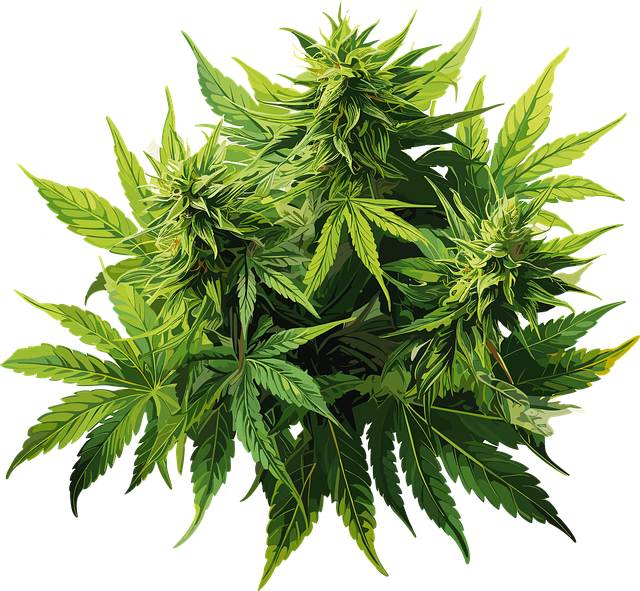THCA (tetrahydrocannabinolic acid), a non-psychoactive compound found in cannabis and distinct from its psychoactive counterpart THC (tetrahydrocannabinol), has emerged as a therapeutic subject of interest due to its potential health benefits, including anti-inflammatory, pain-relieving, and neuroprotective properties. Colorado's progressive marijuana laws have facilitated research and use of THCA, which is legally recognized under both medical and recreational cannabis regulations within the state. THCA flower, rich in CBD (cannabidiol) and other cannabinoids, is increasingly popular among consumers for its wellness applications, targeting conditions such as chronic pain, anxiety, and certain neurological disorders. As a key player in Colorado's burgeoning cannabis industry, THCA's legal status there underscores its growing importance in health and wellness. It is regulated separately from THC, provided it remains below 0.3% THC on a dry weight basis when sold as "industrial hemp" products. Users are encouraged to consult healthcare professionals given the unique ways bodies metabolize cannabinoids, even as research continues to explore its full potential within the endocannabinoid system and its influence on various physiological functions.
Uncover the transformative properties of THCA flower, a non-psychoactive cannabinoid drawing attention for its therapeutic potential. As we delve into the benefits and legal landscape of THCA in Colorado, this article sheds light on how this natural compound is legally embraced within the state’s progressive cannabis policies. Join us as we explore the advantages of incorporating THCA flower into wellness routines, with a focus on its potential health effects and the regulatory framework that governs its use in Colorado.
- Exploring the Therapeutic Potential of THCA Flower: Its Legal Status and Benefits in Colorado
- THCA Legal Status in Colorado: A Comprehensive Overview and the Advantages of THCA Flower Consumption
Exploring the Therapeutic Potential of THCA Flower: Its Legal Status and Benefits in Colorado

In recent years, the therapeutic potential of cannabis derivatives has garnered significant attention, particularly within the legal framework established by Colorado’s marijuana laws. Among the non-psychoactive compounds found in cannabis, THCA (tetrahydrocannabinolic acid) has emerged as a subject of interest due to its unique properties and therapeutic benefits. THCA is the raw form of THC (tetrahydrocannabinol), the primary psychoactive component of cannabis. In Colorado, where both medical and recreational use of cannabis are legally sanctioned, THCA flower has become a focal point for those seeking its potential health benefits without the psychotropic effects associated with its decarboxylated form, THC.
THCA flower, rich in CBD (cannabidiol) and other beneficial cannabinoids, is being explored for its anti-inflammatory, pain-relieving, and neuroprotective properties. In Colorado, where the legal status of THCA aligns with the state’s progressive cannabis regulations, consumers and patients have access to THCA flower for a variety of wellness applications. The state’s robust dispensary network provides a platform for those interested in experimenting with THCA’s raw benefits, including its potential use in managing symptoms related to chronic pain, anxiety, and various neurological disorders. As research continues to evolve, the therapeutic applications of THCA flower are likely to expand, further cementing its role within Colorado’s burgeoning cannabis market.
THCA Legal Status in Colorado: A Comprehensive Overview and the Advantages of THCA Flower Consumption

In recent years, the legal landscape surrounding cannabinoids has evolved significantly, particularly within the state of Colorado. THCA, or Tetrahydrocannabinolic Acid, a non-psychoactive precursor to THC found in raw cannabis plants, has garnered attention for its potential wellness benefits. As of the latest updates, THCA is legal in Colorado under the state’s recreational and medical cannabis laws. The Colorado Department of Public Health and Environment regulates THC-containing products, but THCA itself falls into a gray area since it only becomes psychoactive after being decarboxylated—a process that involves heating it to convert THCA into THC. This regulatory distinction allows consumers in Colorado to legally purchase and consume THCA flower, provided it is sold as an “industrial hemp” product, which contains less than 0.3% THC on a dry weight basis.
The consumption of THCA flower is celebrated for its potential therapeutic properties without the psychoactive effects typically associated with THC. Users often turn to THCA for its reported anti-inflammatory and neuroprotective benefits, which may be beneficial for managing pain, inflammation, and certain neurological conditions. Research suggests that THCA interacts with the body’s endocannabinoid system, influencing various physiological processes. In Colorado, where the legal status of THCA is clear, enthusiasts and wellness seekers can explore these benefits legally. The state’s dispensaries and specialty hemp retailers offer a variety of THCA-rich products, including flowers, tinctures, and edibles, catering to those interested in the potential advantages of this cannabinoid. As with any supplement or medication, it is advisable for consumers to consult healthcare professionals before incorporating THCA flower into their wellness regimen, especially considering individual differences in how the body processes cannabinoids.
THCA, or tetrahydrocannabinolic acid, has garnered attention for its potential wellness benefits and the legal landscape surrounding its consumption in Colorado has been clarified. As outlined, THCA’s legal status in Colorado presents a favorable environment for those interested in exploring its therapeutic properties. The article has shed light on the multifaceted advantages of incorporating THCA flower into one’s wellness routine, highlighting its potential benefits without the psychoactive effects typically associated with its mature counterpart, THC. For individuals seeking natural alternatives to manage pain, inflammation, and other health concerns, understanding the legal aspects and exploring the science-backed claims about THCA can lead to informed decisions. As research continues to evolve, the role of THCA flower in health and wellness remains an exciting frontier within the legal cannabinoid market in Colorado.
